(!) Since support from Microsoft will end on January 14th, 2020, Windows 7 will be excluded from the recommended environment from December 15th, 2019 on this site. Vì lý do Microsoft kết thúc hỗ trợ cho Windows 7 vào ngày 14/01/2020, Windows 7 sẽ là hệ điều hành không được khuyến khích sử dụng với trang web này từ ngày 15/12/2019.
Search by Category / Brand Tìm theo danh mục, nhãn hiệu
Search by Category Tìm theo danh mục
- [Thông báo] Cập nhật địa chỉ kho tập kết hàng hóa tại khu vực miền Nam của MISUMI Việt Nam. Xem chi tiết.
[Announcement] Update on warehouse address in the Southern region of MISUIMI Vietnam. See more. - [Cảnh Báo] Thủ Đoạn Lừa Đảo Từ Nhân Viên Giao Hàng – Yêu Cầu Trả Phí Ship. Xem chi tiết.
[Warning] Fraud Calling from Shipper - Asking to Pay Shipping Fee. See more.
Photoelectric Sensors, Fiber Sensors(Fiber clothing material:Fluororesin)
Cảm biến quang điện và cảm biến sợi quang đều được sử dụng rộng rãi trong nhiều ứng dụng khác nhau như phát hiện vật thể, đếm, đo tốc độ. Khi chọn cảm biến quang điện hoặc cảm biến sợi quang, cần thiết xem xét đến các yếu tố như hình dạng đầu cảm biến (ví dụ: hình vuông, hình vít, nhỏ gọn, đầu nối ống, …), khoảng cách phát hiện và môi trường làm việc. Các yếu tố này rất quan trọng để đảm bảo việc tạo ra các sản phẩm chất lượng cao. Chúng tôi đặc biệt khuyên dùng các thương hiệu uy tín như MISUMI, OMRON, PANASONIC, cũng như các sản phẩm thuộc phân khúc phổ thông (Economy) của MISUMI. Hãy tận dụng những ưu đãi miễn phí vận chuyển và không có giới hạn giá trị đặt hàng tối thiểu khi mua cảm biến quang điện hoặc cảm biến sợi quang. Nếu bạn có bất kì thắc mắc hoặc cần hỗ trợ trong việc lựa chọn sản phẩm phù hợp, các chuyên gia của chúng tôi luôn sẵn sàng hỗ trợ.
Các loại cảm biến quang, cảm biến điện quang và sản phẩm liên quan phổ biến bao gồm: cảm biến quang thu phát, cảm biến quang thu phát chung, cảm biến quang thu phát riêng, cảm biến quang thu phát độc lập, cảm biến quang npn, cảm biến quang pnp, cảm biến quang sick, cảm biến gương, cảm biến quang trở, cảm biến quang khuếch tán, cảm biến quang phản xạ gương, cảm biến quang phản xạ khuếch tán, cảm Biến Sợi Quang, Bộ khuếch đại sợi quang, cảm biến quang học, cảm biến quang hồng ngoại, cảm biến quang loại nút nhấn, cảm biến quang chữ u, cảm biến chữ u, mạch cảm biến quang, sensor cảm biến quang, cảm biến quang Omron, cảm biến sợi quang Omron, cảm biến quang Omron E3Z-D61, cảm biến gương Omron, cảm biến quang thu phát Omron, cảm biến quang chữ U Omron, cảm biến quang phản xạ gương Omron, cảm biến quang điện Omron, cảm biến quang thu phát chung Omron, cảm biến quang thu phát độc lập Omron.
Search by specifying the lower class categoryTìm kiếm bằng cách chỉ định danh mục lớp thấp hơn
 Photoelectric Sensors
Photoelectric Sensors Laser Sensor
Laser Sensor Fiber Units
Fiber Units Fiber Sensors (Amplifiers)
Fiber Sensors (Amplifiers) Lens for Sensor (for Photoelectric Sensors and Fiber Sensors)
Lens for Sensor (for Photoelectric Sensors and Fiber Sensors)
Brand |
|
|---|---|
| CAD |
|
| Days to Ship |
|
1 itemsMặt hàng
- Sort By
-
You can add up to 6 items per a category to the compare list.
![Oil Resistant Photoelectric Sensor [E3ZR-C]](//vn.misumi-ec.com/linked/material/mech/OMR1/PHOTO/221006384398.jpg?$product_view_b$)
Oil Resistant Photoelectric Sensor [E3ZR-C]
OMRON
A photoelectric sensor that's resistant to cutting fluid and suppresses breakdown due to ingress of cutting fluid[Features]· Uses a fluorine resin cable that's resistant to cutting fluid· Cutting fluid ingress is prevented by a sealing method with no gaps at the joint· Protection Degree IP67G (JIS C 0920 Annex 1)
Detection Distance(mm) Type Detection Type Light Axis Arrangement Type Head Shape Detection Light Type Detection Object Amplifier Installation Type Detection Light Color Head Material Detection distance 【classification】(mm) Operating Environment Protection Structure Amplifier Function (Selectable only when Amplifier is installed) Fiber Type (Selectable only when Amplifier is not installed) Fiber clothing material Fiber minimum bend R(mm) - - Transparent / Reflection Emitting and Receiving Sections Integrated, Single / Emitting and Receiving Sections Integrated, Reflection Plate Used / Emitting and Receiving Sections Separated Square Standard - Built-in Type Red Stainless Steel ~500 / ~3000 / More than 10000 Oil Resistant IP67 - - Fluororesin - From: 6,157,765 VND Days to Ship: Số ngày giao hàng: 7 Day(s) or more  7 Day(s) or more
7 Day(s) or more
| BrandNhãn hiệu |
|---|
| Product SeriesDòng sản phẩm |
| CADCAD |
| From |
| Days to ShipSố ngày giao hàng |
| Detection Distance(mm) |
| Type |
| Detection Type |
| Light Axis Arrangement Type |
| Head Shape |
| Detection Light Type |
| Detection Object |
| Amplifier Installation Type |
| Detection Light Color |
| Head Material |
| Detection distance 【classification】(mm) |
| Operating Environment |
| Protection Structure |
| Amplifier Function (Selectable only when Amplifier is installed) |
| Fiber Type (Selectable only when Amplifier is not installed) |
| Fiber clothing material |
| Fiber minimum bend R(mm) |
You can add up to 6 items per a category to the compare list. | |
| BrandNhãn hiệu | OMRON |
| Product SeriesDòng sản phẩm | |
| CADCAD |
|
| From | 6,157,765 VND |
| Days to ShipSố ngày giao hàng | 7 Day(s) or more |
| Detection Distance(mm) | - |
| Type | - |
| Detection Type | Transparent / Reflection |
| Light Axis Arrangement Type | Emitting and Receiving Sections Integrated, Single / Emitting and Receiving Sections Integrated, Reflection Plate Used / Emitting and Receiving Sections Separated |
| Head Shape | Square |
| Detection Light Type | Standard |
| Detection Object | - |
| Amplifier Installation Type | Built-in Type |
| Detection Light Color | Red |
| Head Material | Stainless Steel |
| Detection distance 【classification】(mm) | ~500 / ~3000 / More than 10000 |
| Operating Environment | Oil Resistant |
| Protection Structure | IP67 |
| Amplifier Function (Selectable only when Amplifier is installed) | - |
| Fiber Type (Selectable only when Amplifier is not installed) | - |
| Fiber clothing material | Fluororesin |
| Fiber minimum bend R(mm) | - |
Loading...Tải…
ConfigureTạo
Specification/DimensionsĐặc điểm kỹ thuật / Kích thướcĐặc điểm kỹ thuật / Kích thước
-
Detection Distance(mm)
- 0-3M
- 0~15
- 0.1-3m
- 0.1-2.5m
- 1~15
- 1~30
- 2~6
- 3~50
- 5
- 5~15
- 5~30
- 5.4~9
- 6
- 8
- 8~20
- 10
- 10-50 (white matte paper 50X50 mm)
- 10~20
- 10~30
- 10~50
- 10~250
- 12
- 12~30
- 15m
- 15~38
- 16
- 17
- 20
- 20~100mm
- 27
- 30
- 30 (white matte paper 100X100 mm) / 15 (transparent glass 50X50 mm, t=3.0 mm)
- 30~200
- 30~700
- 35~200mm
- 40~1400
- 50
- 50~3000
- 53
- 60
- 90
- 100
- 100mm
- 100-3000 (when using Mirror MS-2A) / 100-4000 (when using Mirror MS-2S) / 100-5000 (when using Mirror MS-3S)
- 100 (white matte paper 100X100 mm)
- 100~1000
- 100~2000
- 100~3000
- 100~5000
- 100~7000
- 110
- 120
- 130
- 140
- 150
- 150~1500
- 180
- 190
- 200
- 200 (white matte paper 200X200 mm)
- 250
- 280
- 300
- 300mm
- 300 (white matte paper 100X100 mm)
- 350
- 360
- 400
- 450
- 500
- 550
- 600
- 680
- 700
- 800
- 900
- 950
- 1000
- 1100
- 1200
- 1350
- 1500
- 1550
- 1700
- 1780
- 1800
- 2000
- 2000mm
- 2200
- 2600
- 2700
- 2800
- 3000
- 3500
- 3800
- 4000
- 4000/20000
- 5000
- 7000
- 10000
- 15000
- 20000
The detecting distance can vary with your amplifier, operating environment and the detected object.
-
Type
- Photoelectric Sensor
- Laser Sensor
- Fiber Unit
- Fiber Sensor (Amplifier)
- Lens for Sensor
- Fiber Optic Sensor
-
Detection Type
- Transparent
- Reflection
- Liquid Surface Contact
- Recurrent Reflection
-
Light Axis Arrangement Type
- Emitting and Receiving Sections Integrated, Single
- Emitting and Receiving Sections Integrated, Reflection Plate Used
- Emitting and Receiving Sections Separated
- Use a flood and light-receiving integrated unit.
-
Head Shape
-
Cylindrical

-
Square
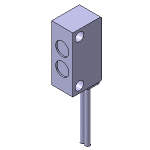
-
Screw
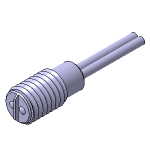
-
Hex

-
Pipe Fitting

-
Low Profile

-
Cylindrical
-
Detection Light Type
-
Standard

-
Small Spots
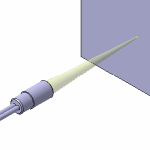
-
Wide

-
Multi-Row
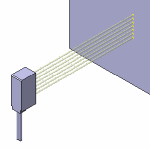
-
Laser
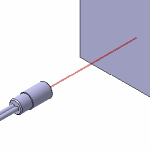
-
Diffused Light

-
Standard
-
Detection Object
- Colored Surface
- Transparent Body
- Mirror Surface Body
- Small Area
- Thin Line Shape
- Liquid Surface (Pipe Mounting)
- Liquid Surface (Contacting)
- Wafer Mapping
- Label
-
Amplifier Installation Type
- Built-in Type
- Separated Type
- Amplifier Only
-
Detection Light Color
-
Head Material
-
Detection distance 【classification】(mm)
- ~10
- ~20
- ~30
- ~50
- ~100
- ~200
- ~300
- ~400
- ~500
- ~1000
- ~2000
- ~3000
- ~4000
- ~5000
- ~10000
- More than 10000
* ~20 represents over 10, and 20 or less.
-
Operating Environment
-
Protection Structure
-
Amplifier Function (Selectable only when Amplifier is installed)
-
Fiber Type (Selectable only when Amplifier is not installed)
-
Fiber clothing material
-
Fiber minimum bend R(mm)
Application example related to this categoryVí dụ ứng dụng liên quan đến danh mục này
Related Categories to Photoelectric Sensors, Fiber SensorsDanh mục liên quan đến Photoelectric Sensors, Fiber Sensors
FAQ Photoelectric Sensors, Fiber Sensors
- Question: What is the main advantage of using photoelectric sensors in industrial applications?
- Answer: Photoelectric sensors offer a significant advantage in industrial settings due to their non-contact detection capability. This feature eliminates the need for physical contact with the target object, reducing wear and tear and enabling reliable, long-term operation. Their quick response time is crucial for applications requiring rapid detection, contributing to increased efficiency in various industrial processes.
- Question: How do I choose the right photoelectric sensor?
- Answer: Selecting the appropriate photoelectric sensor involves considering several factors. Evaluate the sensing distance required for your application, environmental conditions, such as ambient light and temperature, and the characteristics of the target objects. Differentiate between through-beam, reflective, and retroreflective sensors based on the specific needs of your application.
- Question: Can these sensors be used in outdoor environments?
- Answer: Some photoelectric sensors are designed for outdoor use. It's essential to choose sensors with suitable Ingress Protection (IP) ratings to ensure they can withstand exposure to weather elements and maintain reliable performance.
- Question: What is the difference between a through-beam sensor and a reflective sensor?
- Answer: Through-beam sensors consist of separate emitter and receiver units, with the light beam traveling from one unit to the other. In contrast, reflective sensors integrate both the emitter and receiver in the same housing, detecting the light reflected off a target object.
- Question: Can photoelectric sensors detect transparent or highly reflective objects?
- Answer: Certain photoelectric sensors are specifically engineered to detect transparent or highly reflective objects. Choosing sensors with the appropriate technology, such as background suppression or polarization filters, ensures accurate detection in challenging conditions.
- Question: What maintenance do photoelectric sensors require?
- Answer: Photoelectric sensors typically demand minimal maintenance. Regularly cleaning the sensor lens to prevent the accumulation of dust or dirt is recommended to ensure consistent and accurate performance over time.
- Question: Are there any safety considerations when using photoelectric sensors?
- Answer: When using photoelectric sensors, it's crucial to ensure compliance with relevant safety standards. Installation should follow the manufacturer's guidelines, and users should be aware of the sensor's limitations. For critical applications, incorporating redundancy or additional safety measures is advisable to mitigate potential risks.
- Câu hỏi: Ưu điểm chính của việc sử dụng cảm biến quang điện trong các ứng dụng công nghiệp là gì?
- Trả lời: Cảm biến quang điện cho thấy lợi thế to lớn trong công nghiệp do khả năng phát hiện không tiếp xúc của chúng. Tính năng này loại bỏ yêu cầu tiếp xúc vật lý với đối tượng mục tiêu, giảm hao mòn, làm cho việc vận hành trở nên đáng tin cậy và bền bỉ. Thời gian phản hồi nhanh của chúng cũng là yếu tố quan trọng đối với các ứng dụng yêu cầu phát hiện nhanh, góp phần làm tăng hiệu quả trong nhiều quy trình công nghiệp khác nhau.
- Câu hỏi: Làm thế nào để chọn đúng cảm biến quang điện?
- Trả lời: Việc lựa chọn cảm biến quang điện phù hợp liên quan đến việc cân nhắc một số yếu tố. Đánh giá khoảng cách phát hiện cần thiết cho ứng dụng của bạn, các điều kiện môi trường, chẳng hạn như ánh sáng và nhiệt độ xung quanh, và các đặc điểm của đối tượng mục tiêu. Phân biệt giữa cảm biến thu phát riêng, cảm biến thu phát chung và cảm biến phản xạ gương dựa trên nhu cầu cụ thể của ứng dụng của bạn.
- Câu hỏi: Những cảm biến này có thể được sử dụng trong môi trường ngoài trời không?
- Trả lời: Một số cảm biến quang điện được thiết kế để sử dụng ngoài trời. Điều cần thiết là phải chọn cảm biến có chỉ số Bảo vệ chống xâm nhập (IP) phù hợp để đảm bảo chúng có thể chịu được tác động của các yếu tố thời tiết và duy trì hiệu suất đáng tin cậy.
- Câu hỏi: Sự khác biệt giữa cảm biến thu phát riêng (through-beam sensor) và cảm biến thu phát chung (reflective sensor) là gì?
- Trả lời: Cảm biến thu phát riêng bao gồm các bộ phận phát (emitter) và thu (receiver) riêng biệt, với chùm sáng truyền từ bộ phận này sang bộ phận kia. Ngược lại, cảm biến phản xạ tích hợp cả bộ phát và bộ thu trong một cụm, phát hiện ánh sáng phản xạ từ vật thể mục tiêu.
- Câu hỏi: Cảm biến quang điện có thể phát hiện vật thể trong suốt hoặc có độ phản xạ cao không?
- Trả lời: Một số cảm biến quang điện được thiết kế riêng để phát hiện vật thể trong suốt hoặc có độ phản xạ cao. Việc lựa chọn cảm biến có công nghệ phù hợp, như bộ lọc phân cực hoặc bộ lọc loại bỏ nhiễu nền, đảm bảo phát hiện chính xác trong những điều kiện khó khăn.
- Câu hỏi: Cảm biến quang điện cần được bảo dưỡng như thế nào?
- Trả lời: Cảm biến quang điện thường chỉ cần được bảo dưỡng tối thiểu. Nên vệ sinh ống kính (mắt) cảm biến thường xuyên để tránh tích tụ bụi bẩn, đảm bảo hiệu suất ổn định và đáng tin cậy theo thời gian.
- Câu hỏi: Có bất kỳ cân nhắc nào về an toàn khi sử dụng cảm biến quang điện không?
- Trả lời: Khi sử dụng cảm biến quang điện, điều quan trọng là phải đảm bảo tuân thủ các tiêu chuẩn an toàn có liên quan. Việc lắp đặt phải tuân theo hướng dẫn của nhà sản xuất và người dùng phải có hiểu biết về những hạn chế của cảm biến. Đối với các ứng dụng quan trọng, nên kết hợp biện pháp dự phòng hoặc an toàn bổ sung để giảm thiểu rủi ro tiềm ẩn.
- Misumi Việt Nam cung cấp các loại cảm biến quang, cảm biến quang điện chất lượng, giá tốt, giao hàng nhanh. Nhiều dòng sản phẩm thông dụng, thường thấy trong các giải pháp sản xuất bao gồm:cảm biến quang thu phát, cảm biến quang thu phát chung, cảm biến quang thu phát riêng, cảm biến quang thu phát độc lập, cảm biến quang npn, cảm biến quang pnp, cảm biến quang sick, cảm biến gương, cảm biến quang trở, cảm biến quang khuếch tán, cảm biến quang phản xạ gương, cảm biến quang phản xạ khuếch tán, cảm Biến Sợi Quang, Bộ khuếch đại sợi quang, cảm biến quang học, cảm biến điện quang, cảm biến quang hồng ngoại, cảm biến quang loại nút nhấn, cảm biến quang chữ u, cảm biến quang điện, , cảm biến chữ u. Một số linh phụ kiện khác liên quan: mạch cảm biến quang, sensor cảm biến quang, cảm biến quang Omron, cảm biến sợi quang Omron, cảm biến quang Omron E3Z-D61, cảm biến gương Omron, cảm biến quang thu phát Omron, cảm biến quang chữ U Omron, cảm biến quang phản xạ gương Omron, cảm biến quang điện Omron, cảm biến quang thu phát chung Omron, cảm biến quang thu phát độc lập Omron.






![Oil Resistant Photoelectric Sensor [E3ZR-C]](http://vn.misumi-ec.com/linked/material/mech/OMR1/PHOTO/221006384398.jpg?$product_view_b$)
![Oil Resistant Photoelectric Sensor [E3ZR-C]](http://vn.misumi-ec.com/linked/material/mech/OMR1/PHOTO/221006384398.jpg?$product_view_c$)












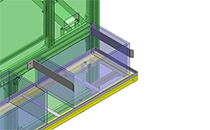









How can we improve?
How can we improve?
While we are not able to respond directly to comments submitted in this form, the information will be reviewed for future improvement.
Customer Privacy Policy
Thank you for your cooperation.
While we are not able to respond directly to comments submitted in this form, the information will be reviewed for future improvement.
Please use the inquiry form.
Customer Privacy Policy